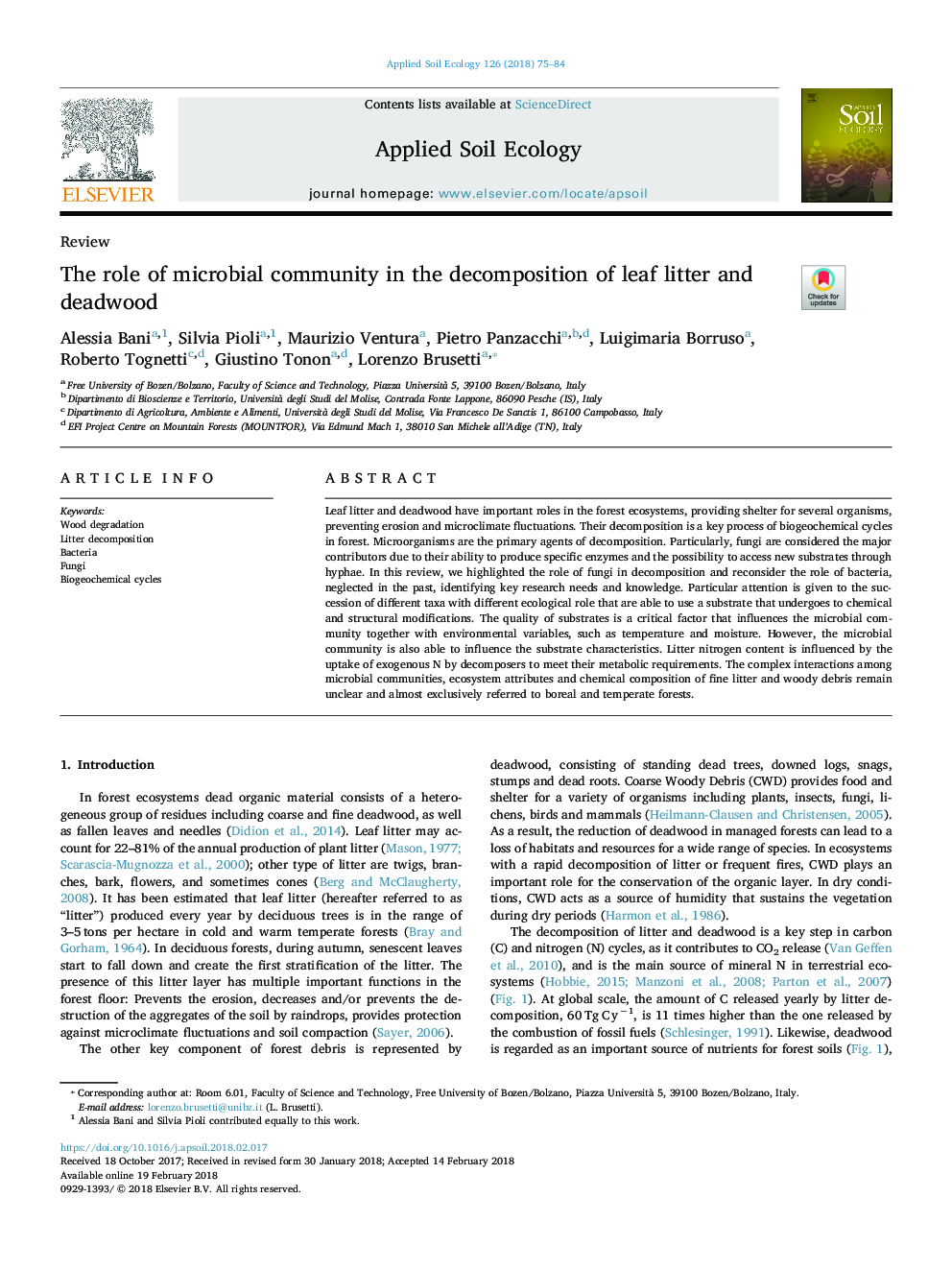| Article ID | Journal | Published Year | Pages | File Type |
|---|---|---|---|---|
| 8846667 | Applied Soil Ecology | 2018 | 10 Pages |
Abstract
Leaf litter and deadwood have important roles in the forest ecosystems, providing shelter for several organisms, preventing erosion and microclimate fluctuations. Their decomposition is a key process of biogeochemical cycles in forest. Microorganisms are the primary agents of decomposition. Particularly, fungi are considered the major contributors due to their ability to produce specific enzymes and the possibility to access new substrates through hyphae. In this review, we highlighted the role of fungi in decomposition and reconsider the role of bacteria, neglected in the past, identifying key research needs and knowledge. Particular attention is given to the succession of different taxa with different ecological role that are able to use a substrate that undergoes to chemical and structural modifications. The quality of substrates is a critical factor that influences the microbial community together with environmental variables, such as temperature and moisture. However, the microbial community is also able to influence the substrate characteristics. Litter nitrogen content is influenced by the uptake of exogenous N by decomposers to meet their metabolic requirements. The complex interactions among microbial communities, ecosystem attributes and chemical composition of fine litter and woody debris remain unclear and almost exclusively referred to boreal and temperate forests.
Related Topics
Life Sciences
Agricultural and Biological Sciences
Ecology, Evolution, Behavior and Systematics
Authors
Alessia Bani, Silvia Pioli, Maurizio Ventura, Pietro Panzacchi, Luigimaria Borruso, Roberto Tognetti, Giustino Tonon, Lorenzo Brusetti,
